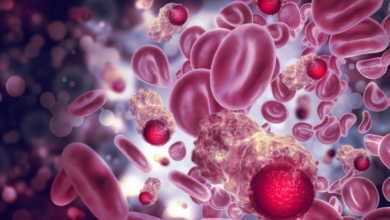Epigenetic Analysis

What is Epigenetic Analysis?
Epigenetic analysis is a scientific technique used to study the chemical modifications that occur on DNA and its associated proteins, which can affect gene expression without altering the underlying DNA sequence. These modifications, known as epigenetic marks, can influence a variety of biological processes, including development, disease, and aging.
Why Epigenetic Analysis is required?
Epigenetic analysis is essential for understanding:
- Gene expression patterns: Epigenetic modifications can regulate gene activity, turning genes “on” or “off” in response to environmental factors or internal signals.
- Disease development: Abnormal epigenetic patterns have been implicated in various diseases, including cancer, neurodegenerative disorders, and metabolic diseases.
- Drug response: Epigenetic factors can influence how individuals respond to medications, leading to personalized treatment approaches.
- Environmental impact: Epigenetic changes can be influenced by environmental factors, such as diet, exposure to toxins, and stress, providing insights into the mechanisms of disease development.
Which are the method of Epigenetic Analysis?
Several techniques are used for epigenetic analysis, including:
- DNA methylation analysis: Measures the addition of methyl groups to DNA, which can silence gene expression.
- Histone modification analysis: Examines changes in the chemical modifications of histone proteins, which package DNA and influence gene accessibility.
- Chromatin immunoprecipitation (ChIP): Identifies proteins that bind to specific DNA sequences, including epigenetic regulators.
- RNA sequencing: Analyzes gene expression patterns to infer epigenetic regulation.
Who should go for Epigenetic Analysis?
Epigenetic analysis is primarily used for research purposes and is not a routine diagnostic test for individuals. However, it may be valuable in specific contexts, such as:
- Disease research: Scientists use epigenetic analysis to study the underlying causes of diseases and develop new therapeutic approaches.
- Personalized medicine: Epigenetic profiling can help identify individuals at higher risk for certain diseases or predict their response to specific treatments.
- Environmental health studies: Epigenetic analysis can be used to assess the impact of environmental factors on health and disease.
What are the results of Epigenetic Analysis?
Epigenetic analysis can provide insights into:
- Gene expression patterns: Identification of genes that are actively expressed or silenced due to epigenetic modifications.
- Disease-associated epigenetic markers: Discovery of abnormal epigenetic patterns that contribute to disease development.
- Environmental influences on gene expression: Understanding how environmental factors can alter epigenetic marks and affect health.
- Potential therapeutic targets: Identification of epigenetic regulators that could be targeted for disease treatment.
What are the components of Epigenetic Analysis?
Epigenetic analysis typically involves the following components:
- Sample collection: Obtaining biological samples, such as blood, tissue, or cells, for analysis.
- Epigenetic modification analysis: Using specific techniques to measure DNA methylation, histone modifications, or other epigenetic marks.
- Data analysis: Interpreting the results and identifying patterns or associations related to gene expression, disease, or environmental factors.
- Validation: Confirming the findings through additional experiments or studies.





